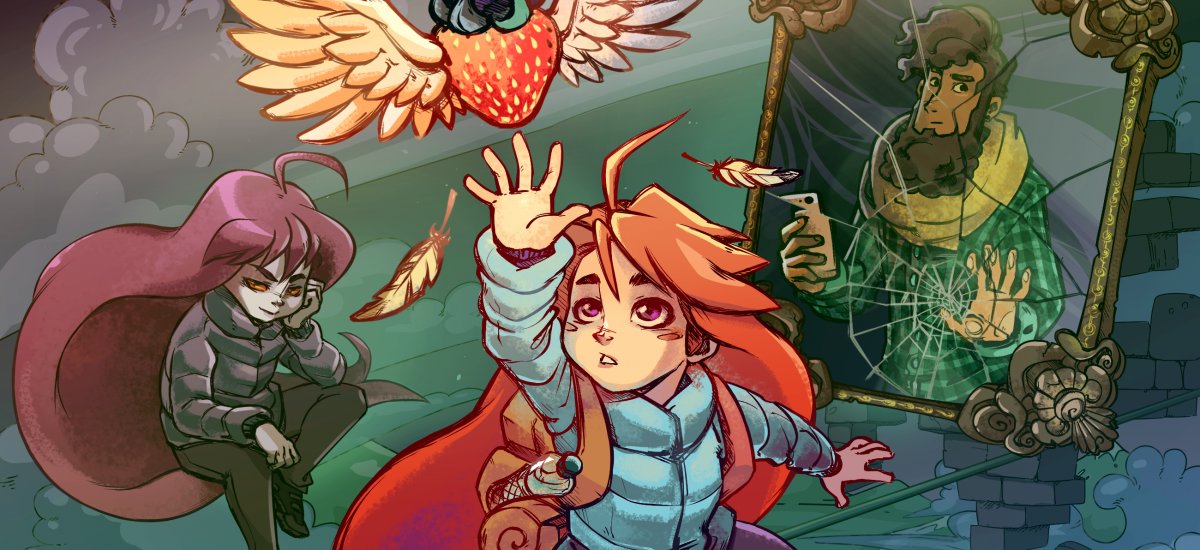
Lena Raine (b. 1984) is a composer who got her start in music quite young, participating in youth choirs at an advanced level and then finding an interest in MIDI and game music in her teenage years. She went on to get a degree in music composition, and then actually worked in the game design side of the industry until gaining traction as a game music composer. Raine has composed and contributed music for many successful games, including Guild Wars 2, Chicory, Deltarune, and the Minecraft: Caves and Cliffs music (alongside Kumi Tanioka). However, she is most known for composing the soundtrack for the award-winning 2018 platform game Celeste.
Raine is transgender, and in a 2015 interview she discusses the issue of having previously published work (music, game development credits, and a book) under her dead name, and the process of changing metadata to accurately credit herself under her chosen name (or chosen pseudonyms such as Kuraine). In the same interview, Raine also says on the subject of coming out in the games industry that:
“You know, a lot of the current industry environment really informed my decision to come out. While it hasn’t affected my immediate experience of the industry, it absolutely will for the future. As I’m sure you’re aware, being a woman in games is not a friendly proposition, but it was something I had to consider when making the choice to come out. I have – and I feel horribly guilty about this – made my way to the point I’m at while aided by the advantages and privilege that being a white man provides. Even though it wasn’t the primary reason for coming out, I felt like I needed to be honest, to not hide among a demographic I wasn’t actually part of, to stand with my fellow lady devs and be there with them.”1
Celeste
Celeste (released in January 2018) is a game which has become a sort of microcosm for trans representation in the gaming community. The game follows the story of a girl named Madeleine as she tries to summit a mountain, facing her mental health struggles-become-manifest along the way. The personal and relatable narrative of the game (as well as the fact that the game mechanics work very well for speedrunning) have resulted in it becoming one of the most popular games of the last few years. In September 2019 a “Farewell” chapter DLC was released which included hints to the fact that Madeleine may have been transgender. The fact that this was only hinted at and not immediately confirmed or denied raised some criticism on the issue of representation. The game’s creator Maddy Thorson revealed in November of 2020 that both herself and Madeleine were, indeed, trans. In her blog post2 she points out that her own long journey to discovering her own gender identity went along with discovering if Madeleine was canonically trans, so that was a factor in not making the reveal explicit in “Farewell.” She also makes sure to say that the main story of the game is about mental health struggles in general, and should be relatable to anybody going through any similar struggles, or in other words neither Madeleine or Celeste are defined by transness. Gender identity does not solely define them, but as the audience reception makes clear, representation is still important. Not only are the fictional character of Madeleine and the person who wrote her into existence both trans women, but Lena Raine3 (composer) and some of the soundtrack’s B-side remixers are as well.4 This has helped to create an online environment around the game where trans and queer gamers and fans feel empowered by the game, and Celeste has even helped some people in the game’s community to find their own gender identities.5 As with the case of Madeleine, Celeste’s writers and composer/remixers and gamers of course aren’t defined by their gender identity, but representation was very helpful to a lot of people.
Footnotes
- The interview was with PinkFae Gaming (a group dedicated to trans-inclusive gaming) on their old website, and is now available in their archives via the Wayback Machine. PinkFae Archives, “Interview: A Conversation with Lena Chappelle,” https://web.archive.org/web/20200703171934/https://pinkfae.org/2015/09/03/interview-a-conversation-with-lena-chappelle/.
- Maddy Thorson, “Is Madeline Canonically Trans?” Medium, November 6, 2020, https://maddythorson.medium.com/is-madeline-canonically-trans-4277ece02e40.
- Lena Raine (@kuraine), Twitter, March 31, 2021, https://twitter.com/kuraine/status/1377284341722607620.
- According to tweets from Christa Lee (@OhPoorPup) and In Love With A Ghost (@LVGHST).
- Jeremy Signor, “How the Celeste Speedrunning Community Becamse Queer As Hell,” Kotaku, November 30, 2021, https://kotaku.com/how-the-celeste-speedrunning-community-became-queer-as-1848120383.
Image credit: (Header) Matt Makes Games, “Celeste box art,” CC BY-SA 4.0, via Wikimedia Commons, https://commons.wikimedia.org/wiki/File:Celeste_box_art_final_2.png; Sara Ranlett, “Lena Raine,” CC BY-SA 4.0 via Wikimedia Commons, https://commons.wikimedia.org/wiki/File:Lena_Raine.jpg.
